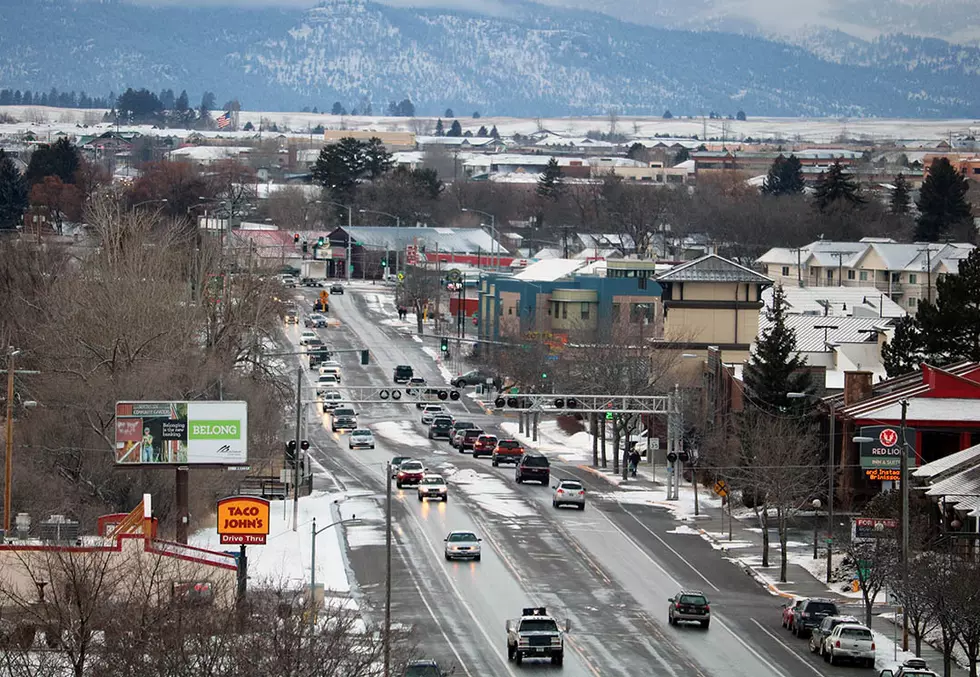
City of Missoula to solicit redevelopment proposals for Sleepy Inn
Martin Kidston/Missoula Current
A now vacant and dilapidated Missoula property that once served as a motel and later as a quarantine shelter during the pandemic began moving toward eventual sale and redevelopment on Wednesday.
City officials and the Missoula Redevelopment Agency detailed their plans with members of the City Council to hire a realtor and begin seeking development proposals for the old Sleepy Inn property.
Given the size and constraints of the lot, redevelopment could be challenging. However, proceeds from the property's sale could bolster the city's Affordable Housing Trust Fund to aid in other affordable housing projects within the corridor.
Redevelopment would also set the tone for future projects within the West Broadway planning area.
“For all the noise about the Sleepy Inn over the years, this is truly a success story. We bought it in very short order to meet a real acute public safety need in our community. Without a doubt, it saved lives,” said council member Jordan Hess. “Now, on the back end, we made money through FEMA, we're going to make money on the sale of this property, and we're going to develop housing in the process. It's a win-win-win.”
With approval from City Council, the city purchased the Sleepy Inn in 2020 for roughly $1.1 million. It was transformed into a non-congregant shelter during pandemic and, over the course a year, it housed 395 individuals, according to the city.
Operating costs totaled around $1.8 million and were reimbursed through FEMA. The city said it also received rent revenue amounting to $718,000.
But the site is now vacant, the services disconnected, and vandalism is rampant. It's likely that MRA could provide funding to remove the motel while the process of selling the property for redevelopment plays out over the next year, according to MRA Director Ellen Buchanan.
“We're past the point where it's an asset, and it has become and is a liability,” she said. “We're trying to get an asbestos contractor in there to do a building materials inventory and determine what the cost of that would be. That would be funded by Brownfields money while the actual deconstruction or demolition will likely be done with tax increment funding. We need to do that as soon as possible.”
Shortly after the pandemic hit and the Sleepy Inn began serving as a shelter, the city completed a master plan for the West Broadway corridor. The resulting plan covers roughly 15 acres and envisions around 130 market-rate townhomes and apartments, and a goal of 70 affordable housing units targeted to a range of incomes.
Because the city owns the Sleepy Inn, it's likely to be the first property redeveloped in accordance to the master plan. The current vision calls for a five-story building with ground-floor retail and roughly 35 residential units.
But given the challenges of developing the site and economies of scale, city officials said subsidized housing will likely have to go elsewhere in the planning area where it's more affordable to build.
“The master plan recommended targets for affordable housing, but spread throughout the site, not specifically in just one area,” said Annette Marchesseault with MRA. “We'd love to have some affordable units in this development, but we don't know yet if the market will support that.”
Even if the Sleepy Inn property offers market-rate units at the expense of subsidized housing, members of the City Council said the proceeds from the sale of the property would be invested into the Affordable Housing Trust Fund.
That revenue could then be used to leverage affordable housing projects as the West Broadway corridor develops. The city also owns the Missoula Water building within the corridor, along with an adjacent parcel.
“If we sell the property and turn a profit on it, that gets invested in the Affordable Housing Trust Fund, and we may be able to leverage that money from the trust fund to a greater extent somewhere else,” said Hess.
“I'm comfortable with that potential trade-off, selling this property to a different use and, as a function of that development, put more affordable housing on a nearby site that's at a lower cost per unit to develop because it doesn't exhibit those site constraints. That's still a win in my book.”
Other members of the council shared similar optimism.
“I'm thrilled this is coming back around and we're going to have so many options,” said council member Amber Sherrill.
Marchesseault said the next step will have MRA engage a realtor who will solicit development proposals using the master plan as a guiding document. Once a preferred development proposal has been identified, the City Council would be asked to approve the sale.
“I'm super excited about the future of the Sleepy Inn,” said council member Mirtha Becerra. “It will serve as a catalyst for redevelopment in that area and help set the tone for what's to come. The neighbors want to see uses that are compatible with the plan and a benefit to the neighborhood.”
